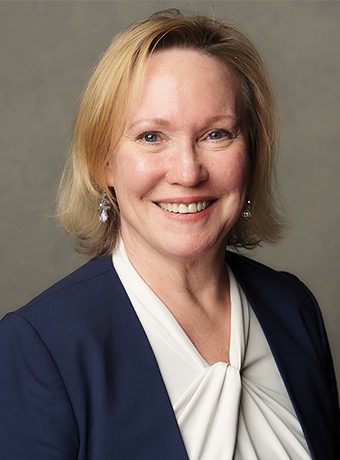12 minutes
Confidence is fundamental to professional success—so why do women struggle to build and apply it?
When asked about their careers, successful people often thank those closest to them—their bosses, mentors, parents or friends. They may reflect on their own passion or relentless energy. Rarely do they acknowledge overcoming self-esteem issues. This obstacle on the path to success is not always easy for women to surmount, however, and even some of the most remarkable female role models have struggled with confidence.
Katty Kay and Claire Shipman, authors of The Confidence Code, explored this phenomenon. They found that “success correlates just as closely with confidence as it does with competence. The natural result of low confidence is inaction. When women hesitate because we aren’t sure, we hold ourselves back.”
Such negative behavior saps energy and motivation and can lead to anxiety and depression—and it can lead women to self-sabotaging their careers.
Gaby Gramont, writing for TorchLightHire.com, notes that women often experience a crippling amount of work-related anxiety that men do not: “This is known as the Confidence Gap.” Gramont says that feelings of inadequacy and self-doubt in men, particularly white men, often go away due to validation received over the years.
Mind the Gap
Finding a solution requires delving into why the confidence gap exists at all. “In my experience, the issue isn’t that women are less confident than men. The problem is that confidence in women is not rewarded in the same way in the workplace as it is for men,” says Bryn C. Conway, MBA, CUDE, principal of BC Consulting LLC: Strategies Beyond Creative, Frederick, Maryland. “This differential view of confidence in men versus women is a possible reason the confidence gap persists.”
Conway points to two 2018 articles, one in Forbes and another in The Atlantic, which examine the confidence gap. Both cite studies that show women feel equally confident in their abilities as their male counterparts but that their confidence is more negatively viewed in the workplace, leading to inequity and lack of women in leadership roles.

“Subsequently, women feel they need to appear equally self-assured and modest to succeed,” says Conway. “Too much confidence is viewed unfavorably because studies have shown that confident women are seen as less likable and less hirable. The flip side is that when women are too modest about their accomplishments and too tempered in self-promotion, they get overlooked for professional development and advancement opportunities.”
Conway herself has felt torn about this balancing act. “I—and most women I know—can relate to this dilemma. I don’t lack confidence overall, but at times, I feel less confident in knowing when and how to articulate my self-worth, depending on my situation.
“The remedy for women who feel the need to be both modest and confident lies not in simply encouraging the development of confidence individually but rather in acknowledging its existence in the workplace and deliberately looking for ways to normalize the sharing of accomplishments and rewarding self-assuredness for everyone.”
You can begin creating such a culture of confidence by embracing all employee achievements, says Conway. “For example, consider instituting the practice of opening executive and employee meetings with each participant sharing an accomplishment since the last time the group met. These accomplishments could be professional or personal, big or small. Regardless, everyone shares a victory.
“This practice accomplishes two things,” she continues. “First, it requires individuals to learn to present their achievements and self-promote. Second, it sets the tone within your organization and culture that discussing accomplishments is a normal, valued, worthwhile pursuit.”
The Imposter Syndrome
The female confidence challenge has been described as the “Imposter Syndrome,” first introduced by feminist scholars Pauline Clance and Suzanne Imes in 1978 and discussed in Clance’s 1985 book, The Impostor Phenomenon: Overcoming the Fear That Haunts Your Success. Their work revealed that frequently, women don’t feel they deserve their job and are “imposters” who could be found out at any moment.
Author Arlin Cuncic, MA, writing for Verywellmind.com, says that imposter syndrome is an internal experience of believing that you are not as competent as others perceive you to be: “To put it simply, the Imposter Syndrome is the experience of feeling like a phony … like you don’t belong where you are, and you only got there through dumb luck.”
Cuncic shares some common signs of people suffering from this mindset:
- An inability to realistically assess your competence and skills
- Attributing your success to external factors
- Berating your performance
- Fear that you won’t live up to expectations
- Overachieving
- Sabotaging your own success
- Self-doubt
- Setting very challenging goals and feeling disappointed when you fall short
Four decades after the term was coined, imposter syndrome continues to impact women. The American Psychological Association reports that 70% of people will experience this phenomenon in their lifetimes. Gramont notes that even such high-achieving famous women as Michelle Obama and Tina Fey have confessed to experiencing imposter syndrome.
There are steps that can help overcome these feelings of inadequacy. Gramont advises women to:
- Identify and label the feeling.
- Recognize and take inventory of your talents.
- Think to yourself: Am I really that talented an actor to fool all these people?
- Have open conversations with mentors who you trust and admire.

Feel Good About What You Bring to the Table
Sara Jensen, SVP/governance and administration for CUES Supplier member Co-op Solutions, Rancho Cucamonga, was raised by educators and people who continually challenged her to think about her presence and what she brought to the community. “However, I know many women—including friends, colleagues and my daughter, who suffer from the imposter syndrome,” says Jensen.
Feelings of imposter syndrome can start early. “Often, women will apologize and not take the well-earned center stage,” notes Deedee Myers, Ph.D., CEO of CUESolutions provider DDJ Myers Ltd., Phoenix. “For example, I coach college students who want to apply for summer internships. The males jump in, quickly assemble a resumé and get the interview. The females spend another few hours carefully attending to each word in the introductory letter and still wonder if they are good enough to apply and will anyone read their resumé.”
Imposter syndrome was a recent topic of discussion at Co-op Solutions’ InspiHER women’s employee resource group. “We discussed how these feelings arise for women; that no matter how accomplished we are, it always feels like someone will find us out,” Jensen explains. “Many stories were shared, along with feelings of why we’re here and self-doubt that we haven’t earned our achievements, despite having very obviously done the work and put in the hours.
“We all could say, ‘I’ve been there and felt that way. I see you. And I acknowledge you for being the great person you are.’ These words of affirmation helped confirm and reinforce our confidence,” says Jensen.
In addition to this external affirmation, there are also ways to boost confidence on your own. Jensen’s daughter, for example, takes this approach when imposter syndrome strikes: “As soon as a negative thought comes into her head, she pauses long enough to take inventory that she wouldn’t be here if she weren’t smart (or accomplished, talented, etc.) enough,” says Jensen. “She pauses long enough to counterbalance intrusive thoughts with what she knows is right, and for her, it’s been an effective strategy.”
Encourage Change
“Our charge, as industry leaders, is to halt the imposter syndrome,” says Myers. “And the best place to start is by being the type of parent, grandparent, supervisor and mentor who negates and mitigates the bias and imposter syndrome in our homes and workplaces. We need to arm our women with the agency needed to find their way in this complex world.
“One step is to structure leadership development courses within your credit union that build acute self-awareness in all participants around implicit bias,” says Myers. According to the National Institutes of Health, implicit bias occurs automatically and unintentionally and affects judgment, decisions and behaviors. “This bias can include how we look, the sound of our name, the color of our hair color, our weight, how we dress, our tattoos and piercings. Look beyond this potential clutter to seek the human awesomeness of our women.”
Implicit bias can interfere when women are building or showcasing confidence; there is an inherent and noticeable difference between how men and women approach professional challenges and how they are viewed by their colleagues.

Jensen can relate to the effects of implicit bias. “Being in a male-dominated field such as finance, I’ve had experiences while being evaluated, and people have said, ‘you’re too pushy or aggressive,’ or ‘too strong in a conversation.’” This type of feedback was usually given by men, she reflects. “So it put into my head that I needed to change who I am or my approach—even though I felt comfortable and effective in what I was doing. I also knew I was respectful and professional. However, the seeds of self-doubt were planted and became internalized. Those seeds can make you feel unworthy of that job, salary or even being at the table.”
Another key change can be encouraged by coaching women to advocate for themselves in the workplace.
Jensen has wrestled with the concept of standing up for herself and embracing her worth. “It’s not that I didn’t think I was worth it; I simply didn’t know how to ask for what I needed or what my time was worth.”
She advises doing your research and finding champions to counteract this tendency. “For example, my husband has been one of my greatest champions, encouraging me not to undervalue myself, my time or what I bring to the table. And whenever I go into a salary negotiation, I examine current trends and salary levels and ensure I know what my role is worth in the market while objectively analyzing my skills and experience.
“Every time I go into negotiations, it’s with a number I can confidently say I’m worth; and if someone else were coming into this role, this is what they would be paid,” says Jensen. “However, it took me a good 20 years into my career to learn to negotiate with confidence.”
Step Up and Speak Up (Without Qualifying)
Leadership coaching focused on building your sense of self can also boost confidence. Myers says this can include understanding that our internal sense of self needs to align with our behaviors and actions. “When we feel confident, we act with confidence.”
Building leadership confidence requires an increase of self-clarity about your leadership presence. Myers notes that self-clarity can include:
- demonstrating the capacity to manage complexity;
- appropriately challenging assumptions and boldly separating fact from fiction at the leadership table;
- leveraging agency to mobilize pragmatic action; and
- building a reputation for responding, not reacting, and not waiting to be second in line—step in!

Myers shares a recent example of when a woman who could have moved forward in line didn’t: “The scenario is flying for business travel, and I am observing from a window seat. A man sitting in an aisle seat steps out of his seat into the aisle the moment the plane arrives at the gate. However, a woman in an aisle seat waits until the male passengers in the front and behind her get up, retrieve their luggage and move towards the door.
“There are plenty of opportunities for her to get up and out,” continues Myers. “And she says, ‘I’m sorry,’ when she finally decides to exit. Here, a woman with deference on the plane most likely has a practice of deference in other parts of life.”
Using such deferential and qualifying language in the workplace— words like “just,” “sorry,” etc.—weakens your message and ultimately creates doubt. And women are more likely than men to take an apologetic tone when speaking, whether this behavior was fostered by their upbringing, in the workplace, or by something else.
Consider this advice from Linda Gordon, University Professor of History and the Humanities at New York University and author of Feminism Unfinished: A Short, Surprising History of American Women’s Movements: “I teach a lot of female students, and I am constantly repeating, ‘speak louder,’ ‘assert your views bravely,’ ‘don’t lift your voice to a questioning tone after each comment,’ ‘don’t precede your statements with, ‘I’m not sure, but ...’ or ‘I’m probably off-base, but …’’”
Building confidence when communicating is essential for personal and professional growth. But Gordon also asks, “Can you build that confidence merely by telling women to have more confidence?”
Myers says no; in a world of increased intention and intensity of diversity, equity and inclusion in the workplace, men’s and women’s language and speaking styles require focused attention—and teaching communication skills should be a workplace requisite. “Women are still raised to be more empathetic than their brothers and conditioned to say, ‘I’m sorry,’ when such a situation would never cross their brothers’ minds.”
Increased self-awareness can bring these tendencies to light and help boost more confident communication. “Once you’re aware of taking a diffident or apologetic tone, you can stop it,” adds Myers.”
Jensen never thought consciously about the use of qualifying language until another InspiHER session. “Now, every time I type the word ‘just,’ I review it and often delete it. And I still find myself tempted to apologize if I don’t get back to someone right away. Or I may begin a question with, ‘I just want to ask you this question,’ as if my question isn’t worthy of being asked.
“I’ve trained myself to take the extra words out and say, ‘I’m asking you this question because … and I thank you in advance for your time.’ It’s still respectful without putting myself in a position of subservience.”
By bringing these skills to her consciousness, Jensen now has a stronger voice and is more confident in her approach and interactions with others. “It’s not an exaggeration that changing how I typed an email has empowered me and been a powerful change in my personal development,” she concludes. cues icon
Owner of Fab Prose & Professional Writing, Stephanie Schwenn Sebring assists credit unions, industry suppliers, and any company wanting great content and a clear brand voice. Follow her on Twitter @fabprose.
Join Us for CUES RealTalk!
Join us for this quarterly discussion and you will hear from a panel of accomplished female leaders, experts, and professionals in a candid discussion about the challenges women face in the workplace their male counterparts do not.






